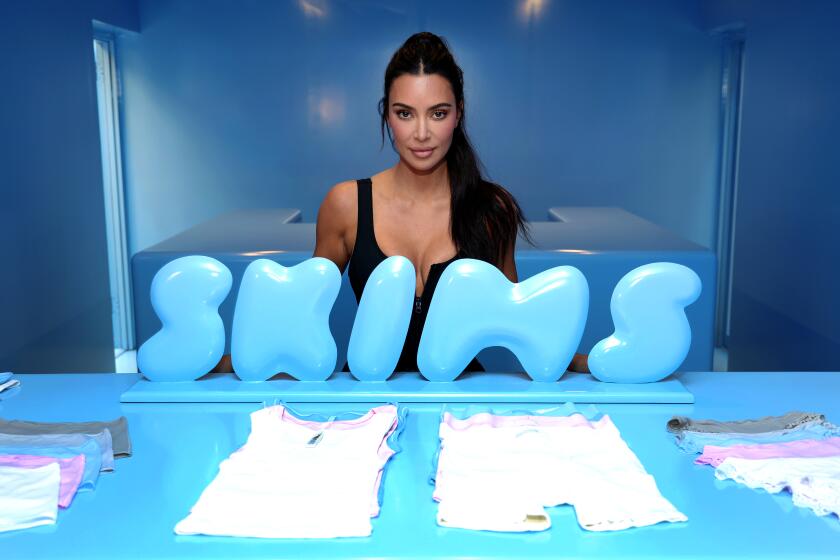Kroger Restates Profits, Cites Accounting Issues
The nation’s largest supermarket company, Kroger Co., has been forced to restate earnings for the last three years because of accounting irregularities at Ralphs Grocery Co., the Southern California supermarket chain it acquired in 1999.
Kroger said a group of former top financial managers collaborated to hide cash and concealed their actions from senior management and auditors, moves which could trigger an investigation by the Securities and Exchange Commission. Kroger officials said the accounting practices were improper and unethical but did not call them fraud. They have not decided whether to take legal action.
Kroger officials said the financial manipulation, which they believe started a year before Ralphs was acquired by Fred Meyer Inc. in 1998, amounted to a $24.6-million, or 2-cent-per-share, boost in 2000 earnings. Fred Meyer was acquired by Kroger in 1999.
Ron Burkle, chair of Ralphs’ parent company at the time some of the alleged irregularities took place, said he was unaware of any earnings manipulation. He said in an interview that he suspects it was simply a case of a string of new chief financial officers trying to reconcile moneys during a time of rapid consolidation.
Shares of Cincinnati-based Kroger dropped 62 cents to close at $23.70 on the New York Stock Exchange.
Kroger said Monday that its earnings, scheduled to be released March 15, rose to $1.34 a share in fiscal 2000 from $1.11 a share a year earlier. The restatement reduced 2000 earnings by 2 cents a share, causing it to miss the consensus forecast of $1.36.
Kroger is just the latest in a string of major companies that have discovered accounting infractions or fraud that had eluded the accounting firms paid to examine the books of companies they were acquiring--a process known as “due diligence.”
The biggest case deals with marketing and franchise company Cendant Corp., whose former chairman and vice chairman were indicted this week on charges of inflating the company’s earnings by several hundred million dollars.
Although the dollar amount of the alleged Ralphs earnings manipulation was minor in comparison, analysts worried that similar improprieties could be discovered at the company’s other divisions.
“We are getting so much of this [accounting irregularities] stuff,” said Jonathan Ziegler of Deutsche Bank in San Francisco. “As an analyst, it spooks you because you don’t know how much of this is really going on behind the scenes.”
Kroger officials said they were tipped off by an employee last September, just before a regular internal audit was to take place, that “improper” accounting practices at Ralphs had been concealed from upper management.
Kroger and KPMG, the accounting firm it hired late last year to review the chain’s practices, found that six former top-level financial managers had collaborated to hide earnings when the company met budget and inflate earnings when the company failed to meet profit projections.
“We believe the overall objective was to manage earnings,” said Rodney McMullen, Kroger executive vice president of strategy. “At times when they had income they could have taken, they did not. Other times, they used some of those moneys to take to income when results were soft.”
Kroger’s restated earnings were increased by 2 cents per share for fiscal 1998, decreased by 2 cents per share for 1999 and decreased by 1 cent per share for each of the first two quarters of its fiscal 2000, which ended Feb. 3.
Although small compared with the company’s overall cash flow, analysts say it should attract scrutiny from the SEC.
“Whenever a company publicly announces accounting irregularities, it can expect the SEC’s antenna to reach for the sky,” said Michael Young, a lawyer at Willkie Farr & Gallagher in New York.
The six executives who oversaw these practices are “no longer with the company,” a spokesman said, and Ralphs has a new chief financial officer, Steve McMullen.
Kroger’s situation renews the debate over the role played by accounting firms hired in corporate mergers to review the target company’s books. These auditors, to whom buyers such as Kroger often pay million-dollar fees, are supposed to ensure that buyers are getting what they are paying for.
But when a financial surprise crops up after the merger, it’s usually not immediately clear whether the accounting firm missed something or was duped by the target company’s management.
Although the auditors do their own investigation, they can’t double-check every single aspect of a business and therefore have to rely on data supplied by the target company’s officers, said Kenneth Merchant, dean of the USC Leventhal School of Accounting. Not every case is fraud, he said.
“They can’t find everything,” Merchant said. “Suppose they’ve done all the digging and one of the documents they’ve found is a forgery. That will trick some auditors. It’s unfortunate, but it’s happened before and it will happen again.”
That’s essentially what the accounting firm Ernst & Young has argued in the Cendant case. The firm was the former auditor of CUC International, which merged with HFS Inc. in 1997 to create Cendant. Massive fraud involving financial performance was later uncovered at CUC, but Ernst & Young said it, too, was deceived by its client.
Merchant also cautioned that there are legal ways companies can massage their financial statements to tweak their profitability.
But just because accounting firms are lied to doesn’t mean they are off the hook. It’s their job to find any misstatements or fraud. And major accounting firms routinely are sued for allegedly failing to uncover malfeasance.
In 1999 Ernst & Young agreed to pay $335 million to Cendant’s shareholders, one of the largest such settlements, to settle a lawsuit that accused the firm of negligence for failing to detect the accounting fraud at CUC. As part of the settlement, Ernst & Young didn’t admit any wrongdoing.
*
Bloomberg News was used in compiling this report.







